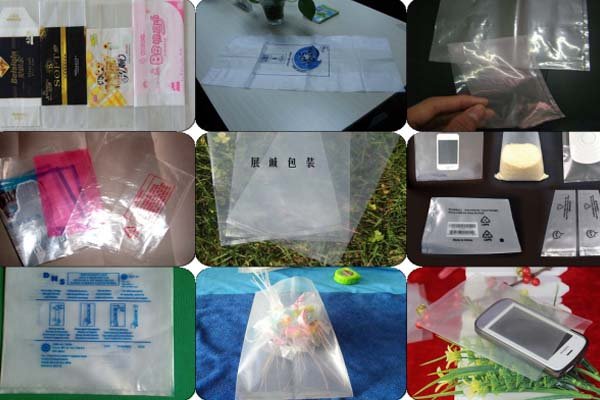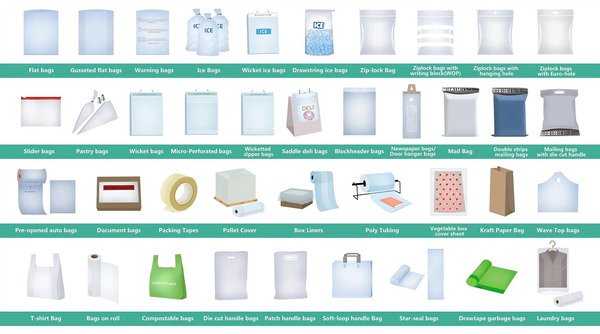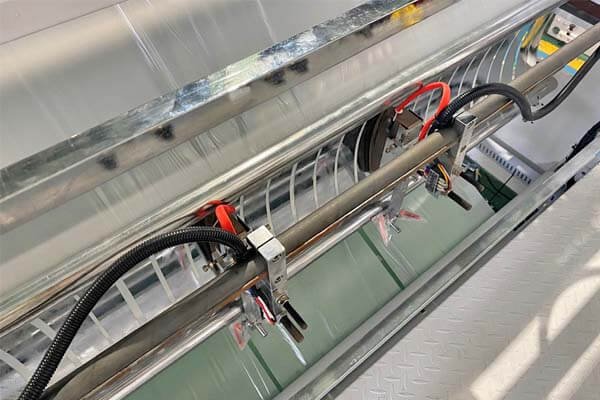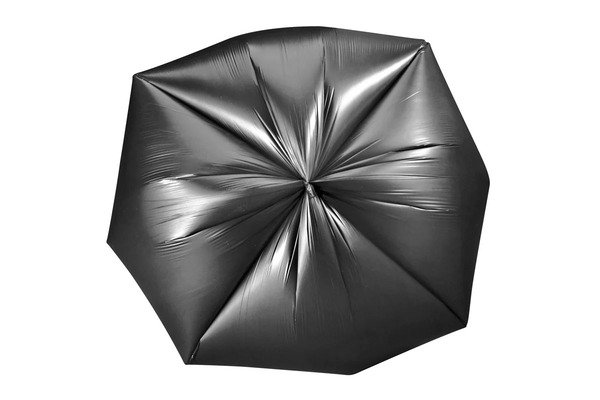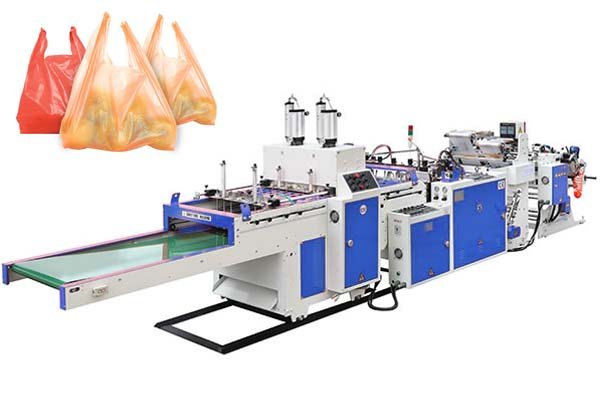When manufacturing courier bags, material compatibility1 is a critical factor that directly affects product quality, production flexibility, and sustainability efforts. BagMec® machines are designed to support a broad range of materials, including both conventional plastics and biodegradable alternatives2.
These machines can process LDPE, HDPE, and co-extruded films3, as well as biodegradable options like PLA. This flexibility allows manufacturers to meet durability and environmental requirements simultaneously.
Supported Materials
- LDPE4 (Low-Density Polyethylene): Offers flexibility and strength, suitable for general-purpose courier bags.
- HDPE5 (High-Density Polyethylene): Provides higher rigidity and moisture resistance.
- Co-extruded Films: Combine multiple layers for enhanced puncture resistance and security.
- PLA6 (Polylactic Acid): A compostable, biodegradable material that requires precise processing due to its heat sensitivity.
BagMec® machines accommodate these materials through advanced engineering features like temperature controls and Smart Tension Control7 technology, ensuring consistent performance across all film types.
How Do BagMec® Machines Ensure High-Quality Seals Across Materials?
A secure seal is essential to prevent tampering, water damage, and handling wear. BagMec® machines incorporate multiple systems to guarantee reliable seals, regardless of the material used.
The sealing system8 includes heat-sealing bars with independent temperature control and consistent pneumatic pressure, suitable for both traditional and biodegradable films.
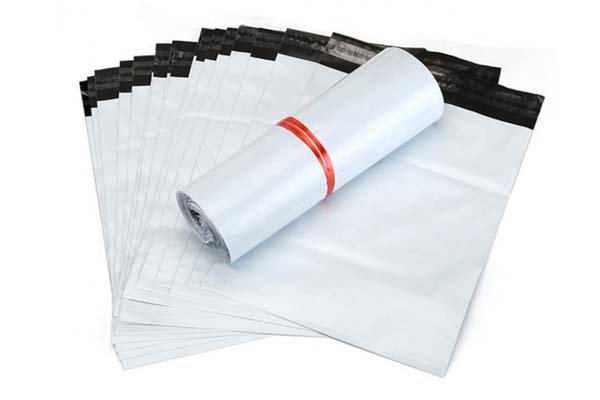
Seal Quality Components
- Sealing Bars: Made from high-carbon steel to ensure durability and even heat distribution.
- Independent Temperature Control: Adjusts precisely to the melting point of each material, avoiding under- or over-sealing.
- Consistent Pressure System: Ensures a strong bond by applying uniform pressure during each sealing cycle.
Material-Specific Sealing Parameters
| Material | Temp. (°C) | Time (sec) | Pressure | Notes |
|---|---|---|---|---|
| LDPE | 120–150 | 0.5–1.2 | Medium | Requires stable heat. |
| HDPE | 130–160 | 0.7–1.5 | Medium-High | Higher melting point. |
| Co-extruded | 140–180 | 0.8–1.8 | High | Needs deeper heat penetration. |
| PLA | 110–140 | 0.4–1.0 | Low-Medium | Very heat-sensitive. |
5-Stage Quality Control Process
Each machine undergoes a 72-hour stress test using laser tools to verify alignment and sealing consistency. This is part of BagMec®’s ISO 9001 quality assurance process, ensuring performance reliability.
What Customizations Improve Performance with Biodegradable Films?
PLA and other bioplastics introduce unique challenges like lower melting points and reduced strength. While standard BagMec® machines can process PLA, specific enhancements are recommended for optimal results.
Custom features such as enhanced cooling, Teflon-coated components, and smart tension systems help manage the delicate nature of biodegradable films.

Custom Features for Bioplastics
- Cooling Systems: Add-on air jets or water-cooled rollers help quickly set PLA seals.
- Teflon Coating: Prevents PLA from sticking to sealing jaws or cutting blades.
- Servo Precision Control: Improves accuracy in feeding and cutting, reducing material waste.
These modifications allow smooth and efficient production while maintaining bag integrity.
Practical Example
A US-based brand producing 100% compostable bags worked with BagMec® to fine-tune settings for their PLA material. This included optimizing temperature curves and installing advanced cooling, resulting in a production line tailored for zero-waste packaging.
Can These Machines Handle Recycled Plastics?
Yes. Processing recycled materials like post-consumer recycled (PCR) LDPE or HDPE is fully supported. These films often vary in thickness and purity, but BagMec® machines are equipped to handle these variations.
Recycled films are managed through smart tension control, durable sealing systems, and high-quality mechanical components designed for tougher handling conditions.
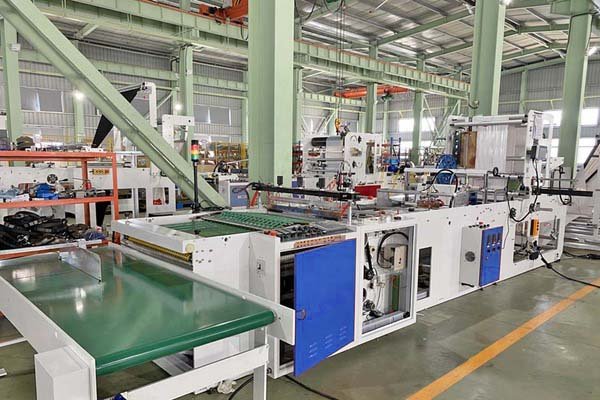
Challenges of Recycled Films
- Impurities: Can weaken seals or cause jams.
- Thickness Inconsistencies: Affect feeding stability.
- Minor Contamination: May interfere with sealing.
Engineering Solutions
- Smart Tension Control: Adjusts feed rate dynamically to handle film variation.
- Robust Sealing System: Maintains consistent seal quality even with mixed material properties.
- Heavy-Duty Design: Withstands the physical demands of processing non-uniform films.
Material Performance Comparison
| Feature | Virgin Plastic | Recycled Plastic | Biodegradable |
|---|---|---|---|
| Durability | High | Medium-High | Medium |
| Cost | Low | Variable | High |
| Environmental Impact | High | Low | Low |
| Machine Compatibility | Excellent | Good (adjusted) | Good (adjusted) |
| Consumer Perception | Neutral | Positive | Very Positive |
How Does Material Type Impact Machine Speed?
Production speed varies depending on the film used. Traditional materials like LDPE/HDPE support faster speeds due to their tolerance to heat. Bioplastics, being more sensitive, may require slower processing.
BagMec® machines are optimized to maintain high throughput, even with delicate or recycled materials, by balancing speed with reliability and precision.
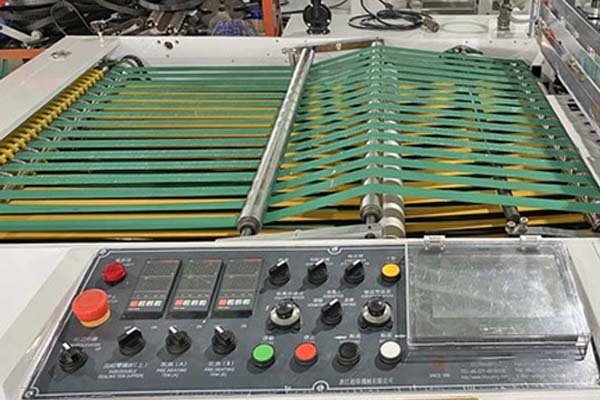
Speed Factors
- LDPE/HDPE: Handle high heat, allowing for faster sealing cycles.
- PLA: Requires lower heat and longer cooling, slightly reducing speed.
Optimizations by Material
- LDPE/HDPE: High-speed servo motors and rigid frames allow 2,400–3,600 bags/hour.
- PLA/Recycled: Features like enhanced cooling and smart tension control improve consistency and reduce downtime, resulting in competitive output rates.
Output Estimates
| Material | Speed (bags/min) | Bags/hour | Speed Limiter |
|---|---|---|---|
| LDPE/HDPE | 40–60 | 2,400–3,600 | Mechanical limits |
| Co-extruded | 35–55 | 2,100–3,300 | Heat penetration |
| Recycled | 30–50 | 1,800–3,000 | Film variation |
| PLA | 25–45 | 1,500–2,700 | Cooling requirement |
Conclusion
BagMec® courier bag machines offer broad material compatibility, including support for virgin plastics, recycled content, and biodegradable films. Whether you're focused on performance, sustainability, or both, the machines are designed for flexibility, durability, and long-term reliability across material types.
-
Understanding material compatibility is crucial for ensuring product quality and sustainability in manufacturing. ↩
-
Explore biodegradable alternatives to learn about sustainable packaging options that reduce environmental impact. ↩
-
Learn about co-extruded films and how they enhance packaging performance through multiple layers. ↩
-
LDPE is widely used in packaging; knowing its properties can help in selecting the right materials for your needs. ↩
-
Discover the advantages of HDPE, including its strength and moisture resistance, for various applications. ↩
-
Understanding PLA can help you make informed choices about compostable and biodegradable packaging materials. ↩
-
Explore how Smart Tension Control technology improves production efficiency and material handling. ↩
-
A reliable sealing system is vital for product integrity; learn about its key components and functions. ↩


